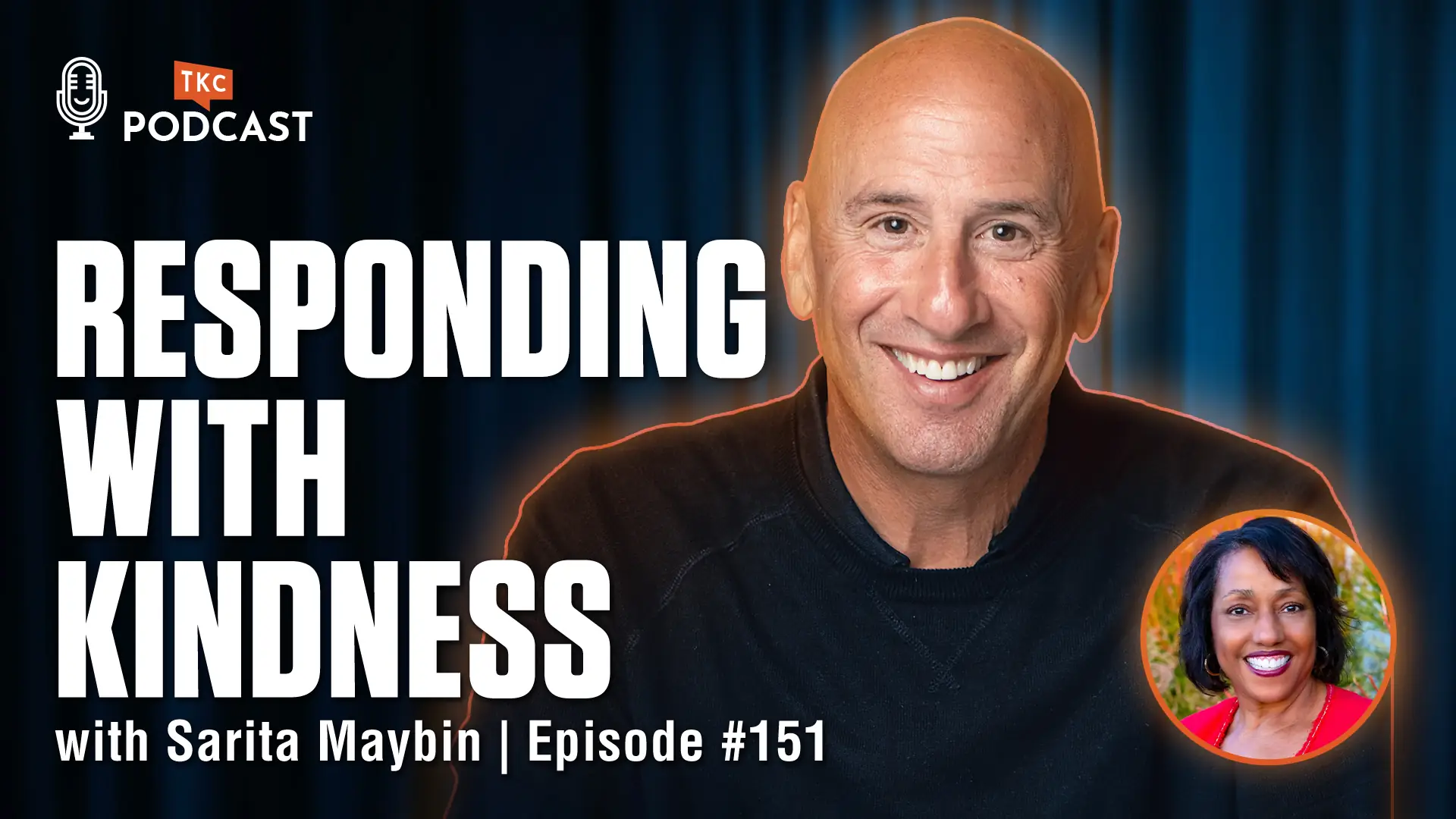
September 27, 2025Why Olympic Champions Prioritize Rest and Sleep to Enhance Performance
Sleep performance enhancement strategies from Olympic champion Apolo Ohno reveal why quality rest trumps training for peak results.
What if the single most powerful performance enhancement tool isn’t found in a gym, supplement bottle, or training manual? Furthermore, what if this game-changing resource is something you already engage with every single night, yet might be dramatically underutilizing? Olympic champion and elite performance expert Apolo Ohno has discovered that quality sleep isn’t just about feeling rested—it’s the ultimate catalyst for transforming your brain function, physical recovery, and decision-making capabilities.
As America’s most decorated Winter Olympian with eight Olympic medals, olympic athlete keynote speaker Apolo Ohno has spent decades refining every aspect of human performance. Through his journey from elite competition to business leadership consulting and bestselling authorship, Apolo has identified sleep performance enhancement as the foundation upon which all other success metrics are built. This revelation challenges conventional thinking about productivity and reveals why the world’s top performers are shifting their focus from working harder to sleeping smarter.
? Watch the full interview with Olympian Apolo Ohno here
The Revolutionary Science Behind Sleep Performance Enhancement
Sleep performance enhancement goes far beyond simple rest and recovery. According to Apolo, “Sleep is the number one performance enhancement tool that we have. It drains, this kind of buildup of amyloid plaque that the gray matter in your brain that could lead to really debilitating disease later on your life.” This scientific insight reveals sleep’s critical role as your brain’s nightly maintenance system.
During deep sleep cycles, your brain activates what neuroscientists call the glymphatic system—essentially a sophisticated cleaning mechanism that flushes toxins and metabolic waste from neural tissue. Meanwhile, this same process consolidates memories, processes emotional experiences, and prepares your cognitive functions for optimal performance the following day. The cascading effects of quality sleep performance enhancement extend to every system in your body, creating a foundation for sustained excellence that no amount of caffeine or willpower can replicate.
Additionally, sleep regulates the delicate balance of hormones that govern everything from appetite control to stress response. When sleep performance enhancement becomes a priority, you’re not just improving rest—you’re optimizing the biological systems that determine your energy levels, decision-making clarity, and physical resilience throughout your waking hours.
Breaking the Destructive Cycle of Sleep Deprivation
The most insidious aspect of poor sleep isn’t the immediate fatigue—it’s the vicious cycle that compounds performance degradation over time. Apolo explains this phenomenon with striking clarity: “If your diet is poor, it’s usually tied a large part, not only to your willpower and your decision making process, but also when you sleep a lower amount of hours that you actually need and required the hormone, the ghrelin hormone that sends a signal to the brain from the gut, and the stomach is telling you that you’re hungry when you’re not hungry.”
This hormonal disruption creates a perfect storm of poor choices. Consequently, insufficient sleep elevates ghrelin levels while suppressing leptin, the satiety hormone that signals fullness. Your body begins sending false hunger signals, driving you toward high-calorie, low-nutrient foods that provide temporary energy but ultimately crash your system further. The result is a downward spiral where poor sleep leads to poor food choices, which in turn compromise sleep quality and perpetuate the cycle.
Moreover, sleep-deprived individuals often compensate with excessive caffeine intake, creating dependency patterns that interfere with natural sleep cycles. This communication breakdown between body and brain undermines the very foundation of peak performance, making sleep performance enhancement not just beneficial but absolutely essential for breaking free from these destructive patterns.
The ripple effects extend beyond physical health into cognitive performance. Sleep deprivation impairs executive function, reduces emotional regulation, and compromises the very decision-making abilities needed to maintain healthy habits. Without addressing sleep performance enhancement as the root issue, attempts to improve diet, exercise, or productivity often fail because the fundamental biological systems supporting these changes remain compromised.
The Olympic Mindset: Treating Sleep as Performance Enhancement
Elite athletes like Apolo understand that sleep performance enhancement isn’t passive recovery—it’s active optimization. This mindset shift transforms how you approach rest, elevating it from an afterthought to a strategic priority. Similarly, business leaders and entrepreneurs who embrace this perspective discover that quality sleep directly correlates with improved creativity, sharper analytical thinking, and enhanced leadership capabilities.
The Olympic approach to sleep performance enhancement involves treating rest with the same intentionality and precision applied to training regimens. This means establishing consistent sleep schedules, optimizing sleep environments, and recognizing that cutting corners on rest ultimately undermines all other performance investments. For instance, an athlete might spend thousands on cutting-edge training equipment while neglecting the free, natural performance enhancer available every night.
Furthermore, this performance-oriented approach to sleep challenges the pervasive cultural narrative that equates sleep with laziness or lack of ambition. Instead, sleep performance enhancement becomes a competitive advantage—a secret weapon that separates peak performers from those running on empty. The most successful individuals understand that sustainable high performance requires strategic recovery, not relentless grinding.
Apolo’s transition from Olympic athlete to best-selling author and business consultant demonstrates how sleep performance enhancement principles transfer across domains. Whether you’re preparing for Olympic competition or navigating high-stakes business decisions, the cognitive clarity and physical resilience gained through optimized sleep create a foundation for sustained excellence.
The Hormone Connection: Understanding Sleep’s Chemical Impact
Sleep performance enhancement profoundly impacts your body’s hormonal symphony, orchestrating chemical messengers that influence everything from metabolism to mood regulation. When sleep quality suffers, this delicate balance becomes disrupted, creating cascading effects that undermine performance across multiple domains. Specifically, inadequate sleep triggers elevated cortisol levels, the primary stress hormone that can remain elevated for hours after waking, creating a state of chronic physiological tension.
The relationship between sleep and hunger hormones represents one of the most critical aspects of performance optimization. Ghrelin, often called the “hunger hormone,” increases significantly when sleep duration falls below optimal levels. Conversely, leptin, which signals satiety and helps regulate energy balance, decreases with sleep deprivation. This hormonal disruption explains why sleep-deprived individuals often experience intense cravings for high-calorie foods, particularly those rich in simple carbohydrates that provide quick energy but ultimately contribute to energy crashes.
Additionally, sleep performance enhancement directly influences growth hormone release, which peaks during deep sleep phases. This hormone plays crucial roles in tissue repair, muscle development, and cellular regeneration. For business leadership professionals and inspirational & motivational speakers like Apolo, optimal growth hormone levels support both physical vitality and cognitive sharpness essential for peak performance.
The insulin sensitivity connection further underscores sleep’s metabolic importance. Poor sleep reduces insulin sensitivity, making it more difficult for cells to utilize glucose effectively. This metabolic disruption not only affects energy levels but also influences long-term health outcomes, making sleep performance enhancement a critical component of sustainable success strategies.
Practical Strategies for Sleep Performance Enhancement
Implementing effective sleep performance enhancement begins with recognizing that quality matters more than quantity, though both are essential. The transition to optimized sleep habits requires patience and commitment, as Apolo notes, you must “endure a few uncomfortable nights of habit change to reach that ‘ah moment’ of true refreshment.” This adjustment period is crucial for establishing new neural pathways and breaking existing patterns of sleep dysfunction.
Creating an optimal sleep environment forms the foundation of effective sleep performance enhancement. This involves controlling temperature, minimizing light exposure, and reducing noise disruptions. The bedroom should function as a sanctuary dedicated solely to rest and recovery. Moreover, removing electronic devices at least one hour before bedtime helps regulate melatonin production, the hormone responsible for initiating sleep cycles.
Consistency in sleep timing proves equally important as environmental optimization. Going to bed and waking up at the same times daily, even on weekends, helps regulate your body’s circadian rhythms. This consistency reinforces natural sleep-wake cycles and improves overall sleep quality over time. Nevertheless, flexibility within reason allows for occasional adjustments without completely disrupting established patterns.
Pre-sleep routines signal to your body that it’s time to transition from active engagement to restorative rest. These rituals might include reading, gentle stretching, meditation, or other calming activities that help shift your nervous system from sympathetic (fight-or-flight) to parasympathetic (rest-and-digest) dominance. The key is establishing activities that consistently prepare your mind and body for high-quality rest.
Nutrition timing also impacts sleep performance enhancement significantly. Avoiding large meals, caffeine, and alcohol close to bedtime prevents digestive disruptions and maintains stable blood sugar levels throughout the night. Instead, if needed, light snacks containing tryptophan or magnesium can support natural sleep processes without causing digestive interference.
The Business Case for Sleep Performance Enhancement
In today’s competitive business landscape, sleep performance enhancement represents a significant competitive advantage that many professionals overlook in favor of longer working hours. However, research consistently demonstrates that well-rested individuals outperform their sleep-deprived counterparts across virtually every metric of professional success. Thought leadership requires the cognitive clarity and creative thinking that only come from optimized rest and recovery.
The economic impact of poor sleep extends far beyond individual performance, affecting entire organizations through reduced productivity, increased errors, and higher healthcare costs. Companies that prioritize employee sleep performance enhancement through flexible scheduling, sleep education programs, and wellness initiatives often see significant returns on investment through improved performance metrics and reduced absenteeism.
For sales professionals, sleep performance enhancement directly impacts relationship building, negotiation skills, and emotional intelligence—all critical components of successful client interactions. The ability to read social cues, respond appropriately to objections, and maintain positive energy throughout long days depends heavily on adequate rest and recovery.
Leadership effectiveness also correlates strongly with sleep quality. Well-rested leaders demonstrate improved decision-making capabilities, better emotional regulation, and enhanced communication skills. These attributes become especially critical during high-stress situations or when guiding teams through challenging periods. Furthermore, leaders who model healthy sleep habits create organizational cultures that value sustainable performance over unsustainable grinding.
The storytelling abilities that distinguish exceptional leaders and speakers also benefit significantly from sleep performance enhancement. Creative thinking, memory consolidation, and emotional processing—all essential components of compelling narrative—improve dramatically with optimized rest. This explains why many successful entrepreneurs prioritize sleep as a non-negotiable element of their success strategies.
Gender-Specific Considerations in Sleep Performance Enhancement
While sleep performance enhancement principles apply universally, specific considerations become particularly relevant for different demographics. Women leaders often face unique sleep challenges related to hormonal fluctuations, caregiving responsibilities, and societal expectations that can complicate rest optimization efforts. Understanding these factors enables more targeted approaches to sleep improvement.
Hormonal variations throughout menstrual cycles, pregnancy, and menopause significantly impact sleep patterns and quality. These natural fluctuations require adaptive strategies that account for changing needs rather than rigid adherence to one-size-fits-all approaches. For instance, some women find that sleep requirements vary throughout their monthly cycles, necessitating flexible scheduling when possible.
The phenomenon of “mental load”—the cognitive burden of managing household and family responsibilities—often disproportionately affects women and can significantly interfere with sleep quality. Racing thoughts about tomorrow’s tasks or unfinished responsibilities prevent the mental quieting necessary for restorative rest. Addressing this issue requires both individual strategies for mental quieting and systemic changes in responsibility distribution.
Professional women in leadership roles face additional challenges when trying to implement sleep performance enhancement strategies. The pressure to prove dedication through long hours, combined with networking events and travel demands, can make consistent sleep schedules particularly challenging. However, the cognitive and emotional benefits of optimized rest often prove essential for sustaining high-level performance over time.
The Recovery Revolution: Beyond Traditional Thinking
Sleep performance enhancement represents a fundamental shift from traditional approaches to productivity and success. Instead of viewing rest as time away from achievement, this perspective recognizes sleep as the foundation upon which all other accomplishments are built. This revolutionary thinking challenges deeply ingrained cultural beliefs about work ethic and success while opening new possibilities for sustainable high performance.
The concept of “productive rest” reframes sleep as an active investment in future capabilities rather than passive downtime. During sleep, your brain consolidates learning, processes experiences, and prepares for optimal function the following day. This understanding transforms the guilt often associated with prioritizing rest into recognition of sleep as essential performance infrastructure.
Recovery science continues revealing new insights into sleep’s role in creativity, problem-solving, and innovation. Many breakthrough ideas and solutions emerge during or shortly after quality rest periods, suggesting that sleep performance enhancement directly contributes to creative and analytical thinking. This connection explains why many successful entrepreneurs and inventors have credited adequate rest as crucial to their most significant achievements.
The ripple effects of embracing sleep performance enhancement extend beyond individual benefits to influence organizational cultures and societal norms. As more leaders demonstrate that sustainable success requires strategic rest, the stigma around prioritizing sleep continues diminishing. This cultural shift enables more people to access the performance benefits that come from optimized rest and recovery.
Long-Term Health Implications of Sleep Performance Enhancement
The long-term health benefits of consistent sleep performance enhancement extend far beyond immediate performance improvements, creating a foundation for sustained vitality throughout life. Research indicates that quality sleep reduces the risk of numerous chronic conditions, including cardiovascular disease, diabetes, and neurodegenerative disorders. These protective effects compound over time, making early investment in sleep optimization particularly valuable.
Cognitive health preservation represents one of the most significant long-term benefits of sleep performance enhancement. As Apolo mentioned, sleep helps drain amyloid plaque buildup in brain tissue, potentially reducing the risk of Alzheimer’s disease and other forms of dementia. This neuroprotective effect occurs through the glymphatic system’s enhanced activity during deep sleep phases, highlighting the importance of both sleep quantity and quality.
Immune system function also depends heavily on adequate rest and recovery. Sleep performance enhancement supports immune cell production, antibody formation, and inflammatory response regulation. These benefits become particularly important for high-performers who face increased stress loads and potential exposure to illness through travel and social interactions.
The relationship between sleep and longevity continues revealing new insights into how rest quality affects cellular aging processes. Telomere length, a marker of cellular aging, appears to correlate with sleep quality and duration. This connection suggests that sleep performance enhancement may literally slow the aging process at the cellular level, supporting both health span and lifespan.
Implementation: Creating Your Personal Sleep Performance Protocol
Developing an effective sleep performance enhancement protocol requires a systematic approach that addresses both immediate improvements and long-term sustainability. The process begins with honest assessment of current sleep patterns, including duration, quality, and consistency. This baseline measurement provides the foundation for targeted improvements and progress tracking.
Sleep tracking technology can provide valuable insights into sleep patterns and quality metrics, though it’s important to balance data collection with sleep anxiety. Some individuals become overly focused on sleep metrics, creating performance pressure that actually interferes with rest quality. The goal is gathering useful information without creating additional stress around sleep performance.
Environmental optimization often yields the most immediate improvements in sleep quality. This includes investing in quality bedding, controlling room temperature (typically between 65-68°F), minimizing light exposure, and reducing noise disruptions. These changes create physical conditions that support natural sleep processes without requiring significant lifestyle adjustments.
Gradual implementation proves more sustainable than dramatic overnight changes. Starting with one or two modifications and allowing time for adaptation before adding additional changes helps build momentum while avoiding overwhelm. For example, you might begin with consistent bedtimes and wake times before addressing environmental factors or pre-sleep routines.
Professional support may be necessary for individuals experiencing persistent sleep difficulties despite lifestyle modifications. Sleep disorders, underlying health conditions, or psychological factors can interfere with sleep performance enhancement efforts. Working with sleep specialists, healthcare providers, or therapists can address these root causes and unlock the full benefits of optimized rest.
The Competitive Advantage of Elite Rest
In a world where everyone has access to the same information, training methods, and productivity tools, sleep performance enhancement emerges as a differentiating factor that separates peak performers from the rest. This competitive advantage stems from sleep’s fundamental role in cognitive function, emotional regulation, and physical recovery—capabilities that directly translate to superior performance across all domains.
The concept of “sleep debt” illustrates why consistent optimization matters more than occasional good nights. Sleep deficits accumulate over time, creating performance decrements that can’t be quickly reversed through single nights of extended rest. This understanding emphasizes the importance of viewing sleep performance enhancement as a daily practice rather than something to address only when exhaustion becomes overwhelming.
High-performing individuals often discover that their best insights, decisions, and creative breakthroughs emerge after periods of quality rest. This pattern suggests that sleep doesn’t just restore function—it enhances capabilities beyond baseline levels. The strategic implications are significant: prioritizing rest can actually accelerate progress toward goals rather than slowing it down.
The sustainability aspect of sleep performance enhancement provides another competitive advantage. While competitors may achieve short-term gains through sleep sacrifice, this strategy inevitably leads to burnout and performance degradation. Those who consistently prioritize rest maintain high performance levels over extended periods, ultimately achieving more significant long-term results.
Transforming Your Relationship With Rest
Perhaps the most profound aspect of sleep performance enhancement involves shifting from viewing rest as a necessary evil to embracing it as a powerful tool for transformation. This mindset change requires challenging cultural messages about productivity while developing new appreciation for sleep’s role in human excellence. The journey often involves unlearning limiting beliefs about rest and success while discovering the profound capabilities that emerge from optimized sleep.
The “ah moment” that Apolo describes—that experience of true refreshment and vitality that comes from quality sleep—serves as a powerful motivator for maintaining sleep performance enhancement practices. Once you experience the clarity, energy, and capability that emerge from optimized rest, returning to sleep-deprived performance becomes unthinkable.
This transformation extends beyond individual benefits to influence relationships, career trajectory, and overall life satisfaction. Well-rested individuals demonstrate improved emotional regulation, better decision-making capabilities, and enhanced resilience in the face of challenges. These qualities create positive feedback loops that support continued success and personal growth.
The journey toward sleep performance enhancement mastery requires patience, experimentation, and commitment to long-term results over short-term productivity gains. However, the compound benefits of this investment—improved health, enhanced performance, and sustainable success—make it one of the most valuable skills you can develop.
Conclusion: The Ultimate Performance Investment
Sleep performance enhancement represents far more than getting adequate rest—it’s a fundamental shift in how we approach human potential and sustainable success. Olympic champion Apolo Ohno’s insights reveal that the most powerful performance tool isn’t found in a gym or laboratory but in the quality of our nightly recovery. By treating sleep as the ultimate performance enhancement tool, we unlock cognitive clarity, emotional resilience, and physical vitality that compound into extraordinary results.
The science is unequivocal: quality sleep optimizes every system in your body, from hormone regulation to neural plasticity. The practical implications are equally clear: those who prioritize sleep performance enhancement consistently outperform their sleep-deprived counterparts across all meaningful metrics. Moreover, the long-term health benefits create a foundation for sustained excellence throughout life, making sleep optimization one of the most valuable investments you can make in your future self.
The transformation begins with a simple recognition—that rest isn’t the enemy of achievement but its greatest ally. Whether you’re an aspiring entrepreneur, established business leadership professional, or someone seeking peak performance in any domain, sleep performance enhancement offers the foundation upon which all other success strategies can flourish. The only question is: are you ready to unlock your ultimate performance potential through the power of optimized rest?
Ready to transform your performance through sleep optimization?
Book Olympic champion Apolo Ohno for your next event to discover elite performance strategies that create lasting results.
Schedule a consultation to discuss how elite performance speakers can elevate your organization.
Contact us directly to explore inspirational & motivational speaker options for your upcoming events.
Watch the complete interview to discover more performance insights from America’s most decorated Winter Olympian.
Discover More Insights
Get in TouchContact US
Fill out the form so we can best understand your needs.
A representative from The Keynote Curators will reach out to you.








